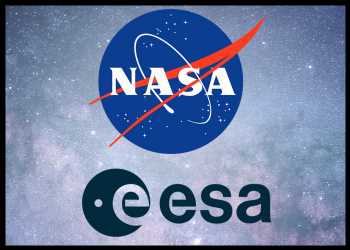U.S., EU Space Agencies To Send Space Telescope To Study Dark Energy
A new space telescope named Euclid is set to launch in July to explore why the universe’s expansion is speeding up. Scientists call the unknown cause of this cosmic acceleration “dark energy.”
Euclid is an European Space Agency mission with important contributions from NASA.
NASA said that its Nancy Grace Roman Space Telescope will join Euclid by May 2027 to explore the dark energy puzzle in ways that have never been possible before.
“Twenty-five years after its discovery, the universe’s accelerated expansion remains one of the most pressing mysteries in astrophysics,” said Jason Rhodes, a senior research scientist at NASA’s Jet Propulsion Laboratory in Southern California. “With these upcoming telescopes, we will measure dark energy in different ways and with far more precision than previously achievable, opening up a new era of exploration into this mystery.”
Rhodes is a deputy project scientist for Roman and the U.S. science lead for Euclid.
Scientists are unsure whether the universe’s accelerated expansion is caused by an additional energy component, or whether it signals that our understanding of gravity needs to be changed in some way. Astronomers will use Roman and Euclid to test both theories at the same time, and scientists expect both missions to uncover important information about the underlying workings of the universe.
Euclid will observe a far larger area of the sky – approximately 15,000 square degrees, or about a third of the sky – in both infrared and optical wavelengths of light, but with less detail than Roman. It will peer back 10 billion years to when the universe was about 3 billion years old.
Source: Read Full Article

